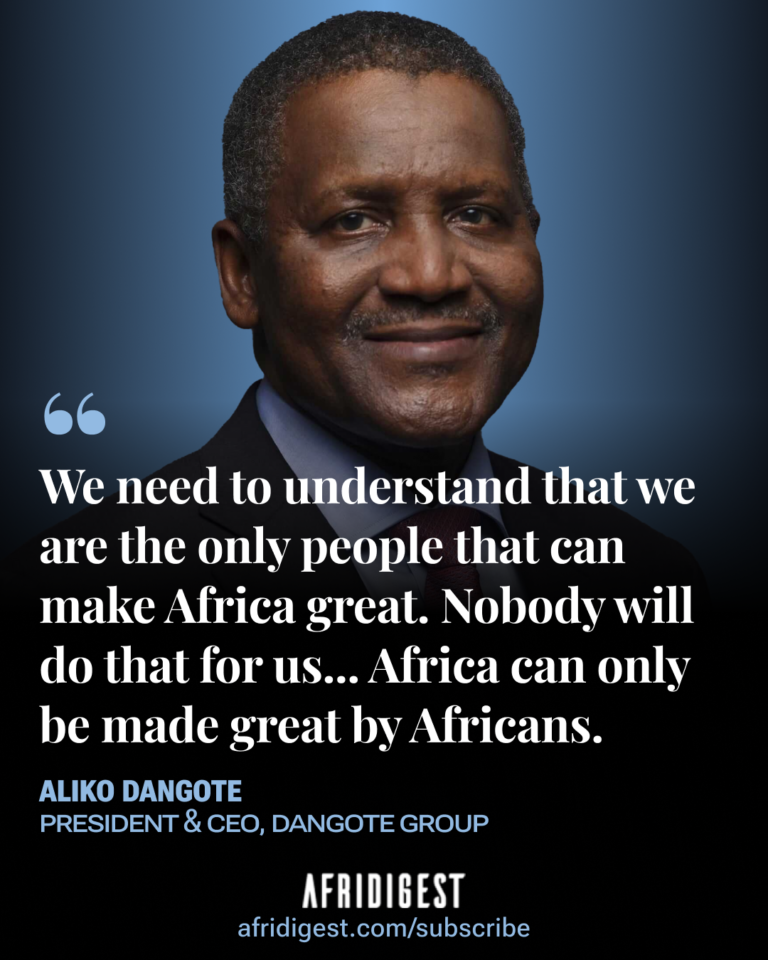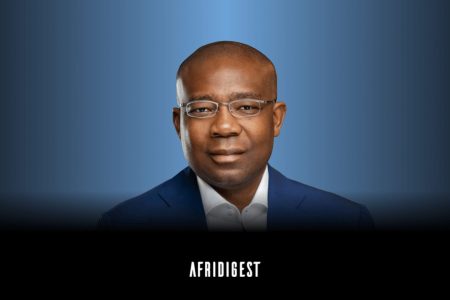Africa’s transformation starts with Africans believing in Africa.
That’s the unwavering message from Aliko Dangote, President of the Dangote Group, whose industrial empire has become a testament to what’s possible when African entrepreneurs invest in African capabilities.
“We need to understand that we are the only people that can make Africa great. Nobody will do that for us… Africa can only be made great by Africans,” Dangote declared at the 32nd Annual Meeting of the African Export-Import Bank.

It’s a powerful call for domestic ownership of Africa’s development agenda from the continent’s richest man and chief industrialist.
His vision? To transform Africa from a resource exporter to an industrial powerhouse.
“The only way to make Africa great is for us to process our resources before they’re exported so that we can actually create jobs,” he emphasizes.
And it’s not just talk, Dangote has backed his words with unprecedented investment across sectors:
- Cement: Dangote Cement transformed Nigeria from the world’s second-largest cement importer to Africa’s largest cement exporter. The business generates over 60% gross margins most years and remains the cornerstone of his fortune.
- Fertilizer: His 3-million-metric-ton fertilizer complex ships 37% of its production to the United States, making Nigeria a significant supplier to American agriculture.
- Petroleum: His most ambitious project, the $20 billion Dangote Refinery, took 11 years to complete and faced countless skeptics. Now operational, it processes 500,000 barrels daily (aiming for 650,000), making it the seventh-largest refinery globally and Africa’s largest, represents 1.1% of the world’s refining capacity. The facility has transformed Nigeria from a petroleum products importer into a net exporter of jet fuel, naphtha, and fuel oil. European refineries that traditionally supplied Nigeria are losing market share as the refinery disrupts global petroleum flows.
But Dangote’s vision goes beyond individual success stories.
He challenges Africa’s business leaders to focus on value addition:
“Don’t come and take my cocoa, process it [overseas], then come and sell the chocolate to me for 20 times the cost,” he says.
That philosophy has driven his net worth to an estimated $23.9 billion – but more importantly, it’s creating a blueprint for African self-sufficiency through industrialization.
That blueprint? Process African resources on African soil. Create jobs locally. Build African champions who reinvest at home rather than ship capital overseas.
“Once you continue to import,” Dangote warns, “you are importing poverty and exporting jobs out.”
His message to fellow African business leaders?
“The job of people like us is not about amassing wealth. It’s about creating wealth. How do you create wealth? You create jobs. You make sure that you expand the economy. Other investors see what you’re doing and they also join in.”
Dangote’s industrialization efforts continue with plans to double his fertilizer plant’s 3 million metric ton capacity, build a subsea gas pipeline, and take his refinery public — all while fighting entrenched interests in Nigeria’s oil sector.
As he puts it: “I’ve been fighting battles all my life, and I haven’t lost one yet.”
What do you think about Dangote’s “Africa First” philosophy?
- Is African-led development the key to unlocking the continent’s potential, or does Africa still need significant foreign partnership and investment?
- How can more African entrepreneurs and business leaders follow Dangote’s model of building globally competitive companies while staying rooted on the continent?





Share: